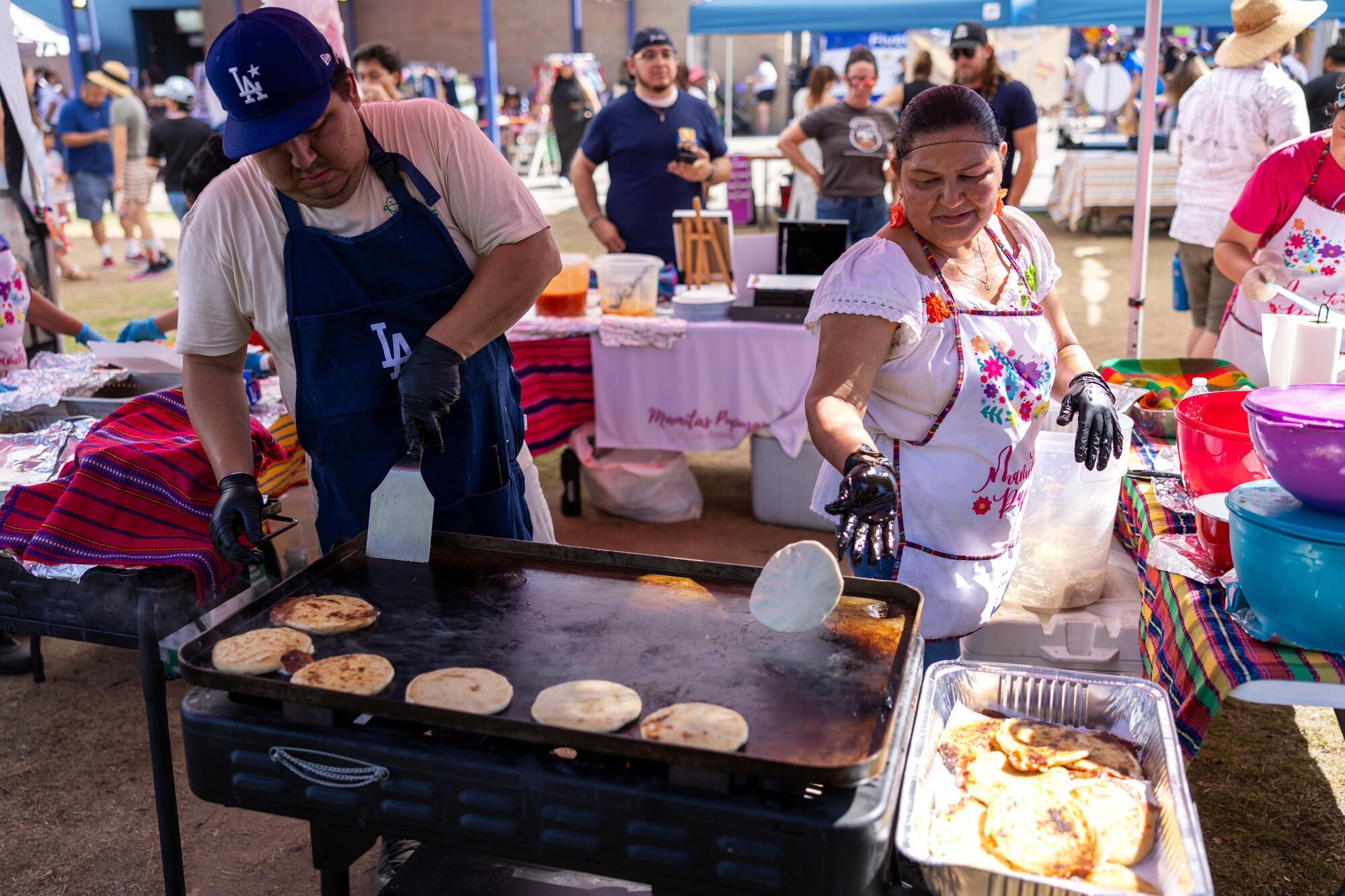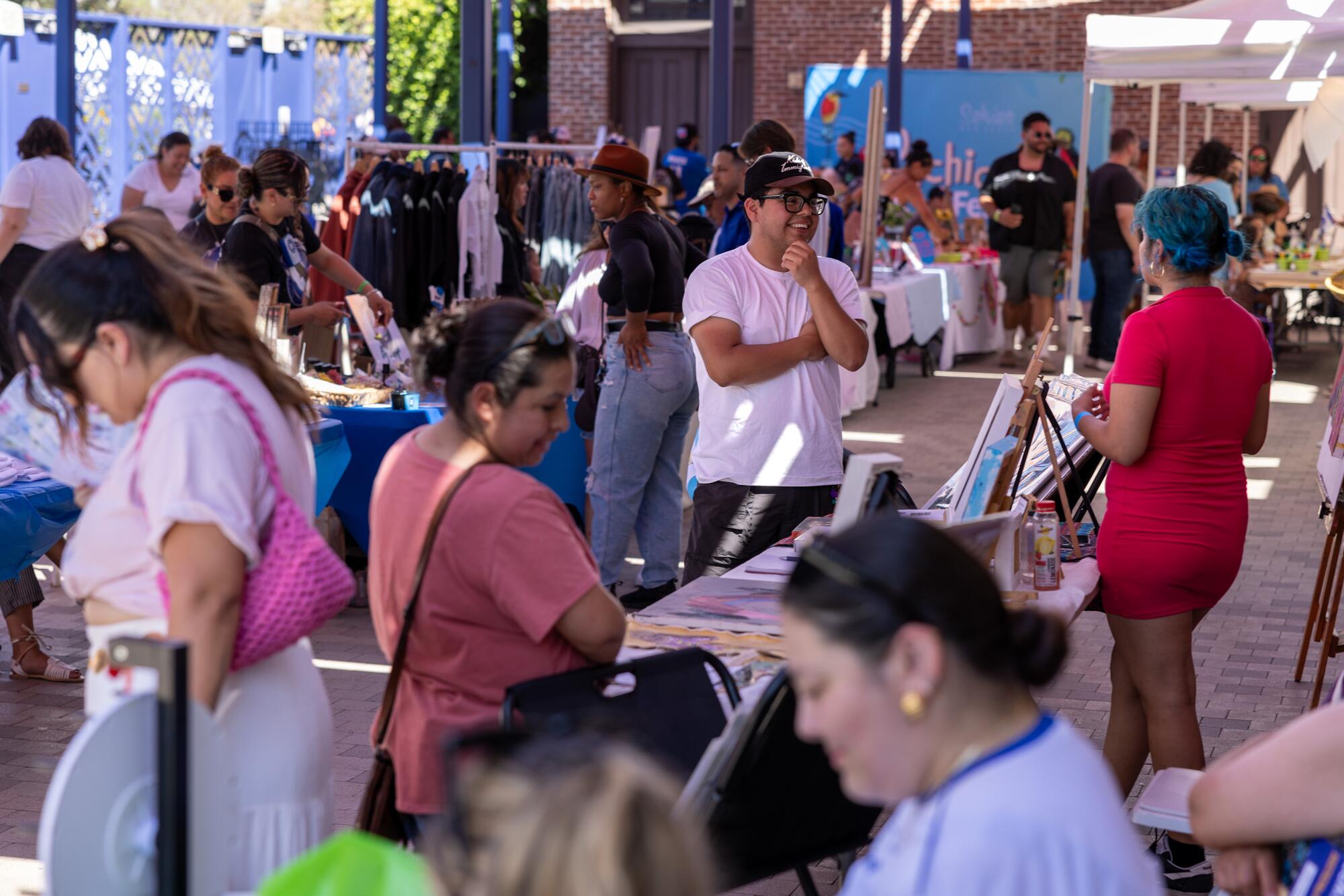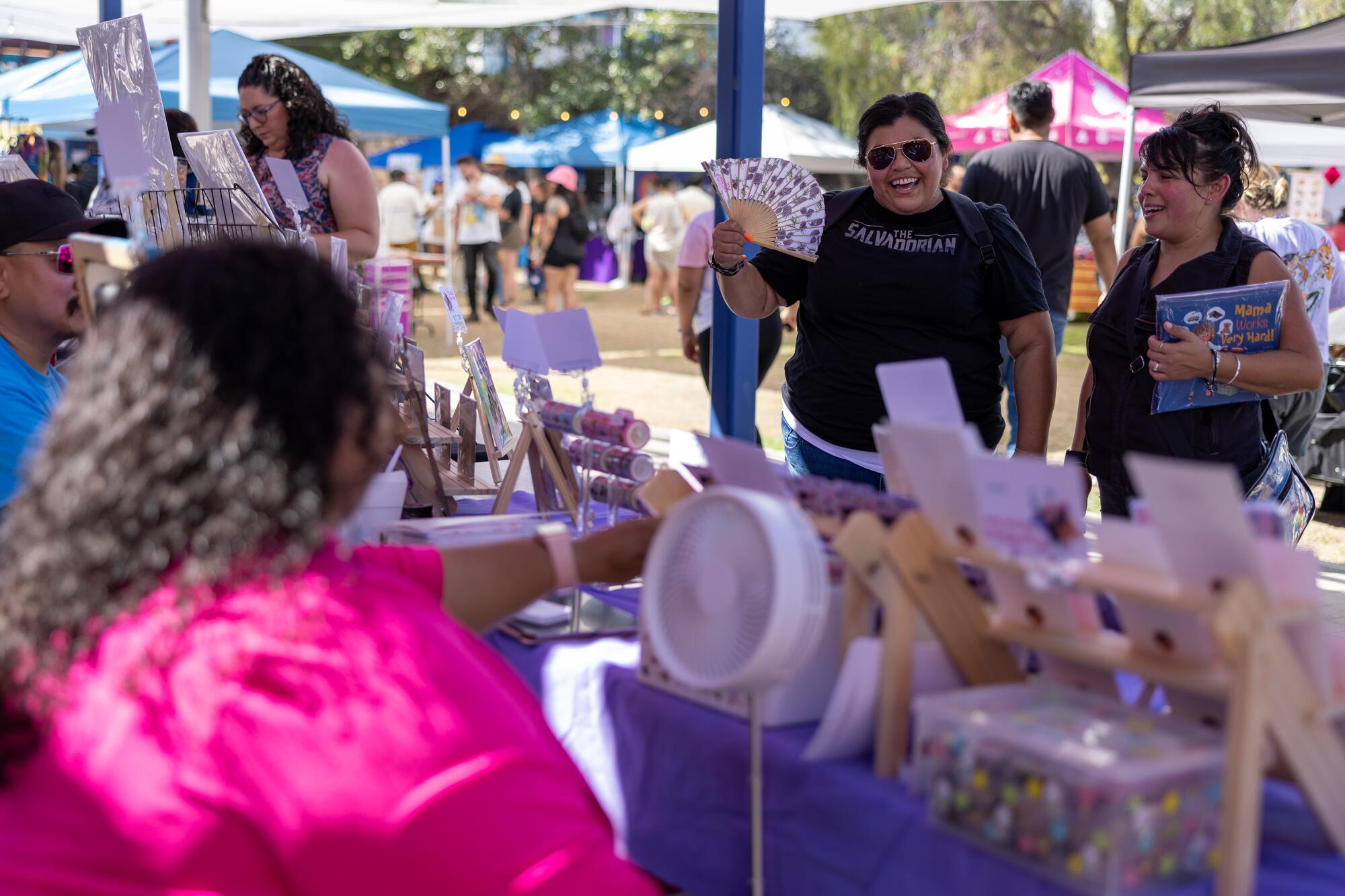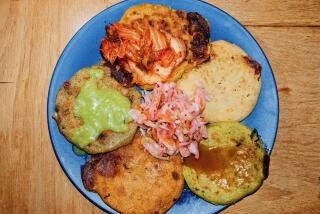
- Share via
Johnny Dominguez and his wife, Celinda, couldn’t believe they were tasting a tamarindo-infused coffee slushie from the Salvadoran Cipota Coffee booth.
“You can taste your identity here,” said the husband, who celebrated his Salvadoran heritage with his family on a recent Sunday. “I just feel seen.”
Dominguez is from Los Angeles but recently relocated his family to Las Vegas. Yet when they saw the social media post for Púchica Fest, he was willing to make the three-hour drive.
Dominguez and about 400 others gathered at La Plaza de Cultura y Artes near downtown Los Angeles to celebrate Central American culture at the inaugural Púchica Fest.
The event was hosted by Salvies Who Lunch, a nonprofit that creates safe spaces for Salvadoran Americans. The organization was founded by longtime Los Angeles resident Cynthia Gonzalez, who has lived in Southern California most of her life. Her parents fled El Salvador about a year after her birth in the 1980s to escape the civil war. Growing up, she felt a lack of Salvadoran representation. Her Central American peers felt the same way, which inspired her to create her charity.
Live music, food booths and vendors selling artisan crafts filled the outdoor festival. Events like this, with more planned in the upcoming months, attract the growing Central American communities, which cluster in cities such as Los Angeles.

There are more than 2.5 million Hispanics of Salvadoran origin in the U.S., according to the most recent Pew Research data, which makes the ethnic group the third-largest population of Hispanic origin living in the country.
Concentrations of Salvadoran populations, from largest to lowest, include California, with more than 30%, Texas, with 14%, followed by Maryland and New York, with 8%, and Virginia, with 7%, according to Pew data.
Púchica, the Central American slang term for “damn,” is used as an expression to showcase surprise. However, Gonzalez saw another meaning behind the term when naming the event.
“It means family, it means unity,” she said. “It means connecting to our community, to our cultura.”
Púchica Fest was previously called Pupusa Fest as nod to the round and delicacy-stuffed dish from the small Central American country, the festival founder said. The nonprofit and its events are meant to provide safe spaces for younger people, who are part of the more than 400,000 Salvadorans in Los Angeles County, according to 2020 census data estimates.
Gonzalez said she decided to rebrand the event to represent a growing Central American diaspora after receiving requests from her attendees.
“A lot of my colleagues and friends have been Mexican and they’ve also opened up doors for me as an individual,” Gonzalez said. “And my Central American siblings are asking for visibility. Why shouldn’t I also open those doors for them and create space?”
The event brought out Salvadorans who wore T-shirts emblazoned with the words “The Salvadorian,” a play on the title of the Disney+ show “The Mandalorian,” starring Pedro Pascal. Also seen were small bracelets, hair bows and other summer wear aesthetics designed with the country’s signature blue and white colors.

Sara Arevalo, who wore white pants and a crop top, drove from Seattle and braved the 90-degree heat. Once at the festival, she learned more about her Salvadoran roots, ate food and connected with other festivalgoers.
“I get the opportunity to contribute to my community,” Arevalo said. “I’m kind of looking for a sense of community with everyone who can relate to me.”
“The SalviSoul Cookbook” author Karla Tatiana Vasquez moderated the “Cuisine & Cultural Identity” panel with two other Salvadoran chefs, Gardenia Rosales of Cipota Coffee in Los Angeles and Anthony Salguero of Popoca in Oakland, and Cheryl Noralez, president of the Garifuna Heritage Foundation, an Afro-Latino nonprofit.
Fashion designer Daniel Buezo, co-founder of the Los Angeles brand Kids of Immigrants, was a guest at the event. The entrepreneur reflected and recalled his family from Honduras and remarked that he was pleased with the festival’s mission to uplift his culture.
“It’s great to have these events that represent our roots, our culture and our families,” Buezo said.
Gonzalez said that she is already planning similar events. Later this year, she plans on introducing a Salvadoran heritage day event during an Angel City FC game on Sept. 1 and “¡Chevere!,” a Salvadoran culture festival planned for Sept. 7 at the Los Angeles LGBT Center.
More to Read
The Latinx experience chronicled
Get the Latinx Files newsletter for stories that capture the multitudes within our communities.
You may occasionally receive promotional content from the Los Angeles Times.







